Space
Sign up for our newsletter
We summarize the week's scientific breakthroughs every Thursday.
-
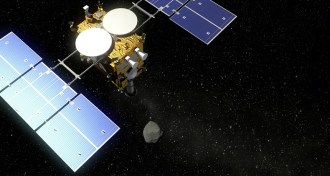 Astronomy
AstronomyJapan’s Hayabusa2 spacecraft arrives at the asteroid Ryugu
The Hayabusa2 spacecraft says “hello” to near-Earth asteroid Ryugu.
-
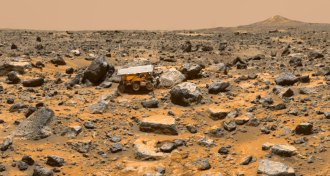 Planetary Science
Planetary ScienceMars got its crust quickly
The Martian crust had solidified within 20 million years of the solar system’s formation.
-
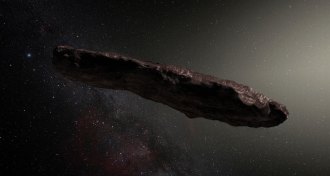 Astronomy
Astronomy‘Oumuamua may be a comet, not an asteroid
The solar system’s first known interstellar visitor doesn’t appear to be the asteroid that scientists thought it was.
-
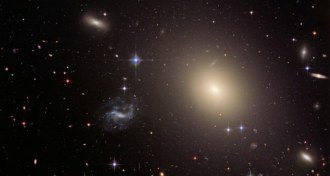 Physics
PhysicsEinstein’s general relativity reigns supreme, even on a galactic scale
Scientists have made the most precise test of Einstein’s theory of gravity at great distances.
-
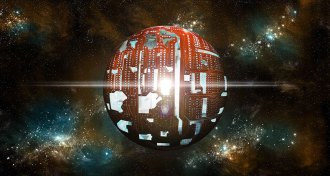 Physics
PhysicsTo combat an expanding universe, aliens could hoard stars
An advanced alien civilization might combat the impact of dark energy by harvesting stars.
-
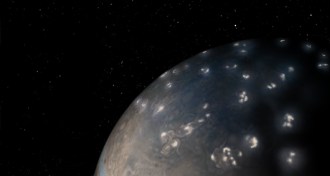 Astronomy
AstronomyOn Jupiter, lightning flashes from storms swirling at the poles
After almost 40 years, scientists have discovered that Jupiter has lightning that is similar to lightning on Earth — it just happens in a different place.
-
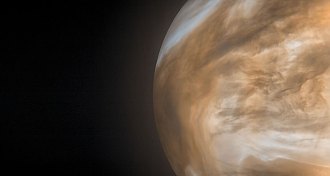 Planetary Science
Planetary ScienceVenus’ thick atmosphere speeds up the planet’s spin
Venus’ thick atmosphere can push on mountains on the surface, changing its rotation period by a few minutes every day.
-
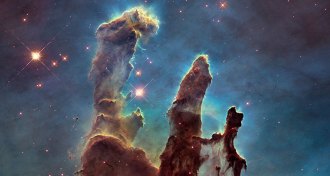 Astronomy
AstronomyMagnetic fields may be propping up the Pillars of Creation
Scientists made a map of the magnetic field within the Pillars of Creation, a star-forming area depicted in an iconic Hubble Space Telescope image.
-
 Astronomy
AstronomyIn 1968, scientists thought they were close to detecting gravity waves
Despite an unverified discovery in 1968, spacetime ripples remained elusive for nearly 50 years.
-
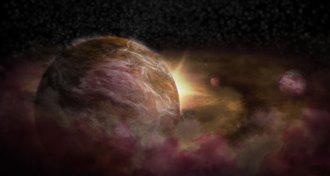 Astronomy
AstronomySwirling gases reveal baby planets in a young star’s disk
A new technique pinpointed three planets forming around a young star about 330 light-years from Earth.
-
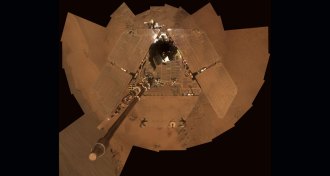 Planetary Science
Planetary ScienceThe Mars rover Opportunity is sleeping, not dead, NASA says
Opportunity is hunkered down in a deep sleep on Mars to ride out what’s looking to be a long dark dust storm.
-
 Astronomy
AstronomyReaders were curious about pendulum saws, laser tweezers and more
Readers had questions about Bronze Age pendulum saws, dark matter, lazer tweezers and more.